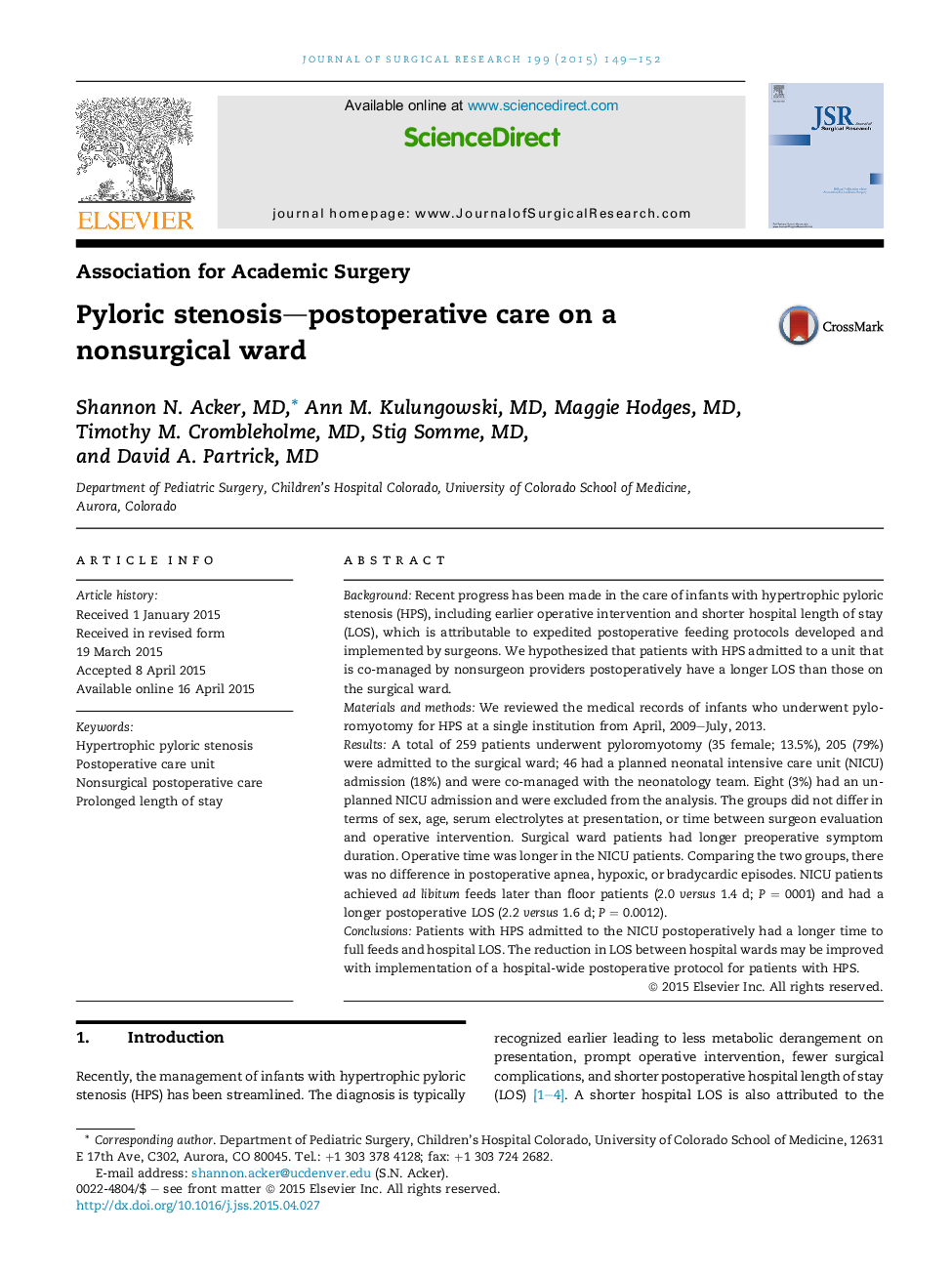| Article ID | Journal | Published Year | Pages | File Type |
|---|---|---|---|---|
| 4299607 | Journal of Surgical Research | 2015 | 4 Pages |
BackgroundRecent progress has been made in the care of infants with hypertrophic pyloric stenosis (HPS), including earlier operative intervention and shorter hospital length of stay (LOS), which is attributable to expedited postoperative feeding protocols developed and implemented by surgeons. We hypothesized that patients with HPS admitted to a unit that is co-managed by nonsurgeon providers postoperatively have a longer LOS than those on the surgical ward.Materials and methodsWe reviewed the medical records of infants who underwent pyloromyotomy for HPS at a single institution from April, 2009–July, 2013.ResultsA total of 259 patients underwent pyloromyotomy (35 female; 13.5%), 205 (79%) were admitted to the surgical ward; 46 had a planned neonatal intensive care unit (NICU) admission (18%) and were co-managed with the neonatology team. Eight (3%) had an unplanned NICU admission and were excluded from the analysis. The groups did not differ in terms of sex, age, serum electrolytes at presentation, or time between surgeon evaluation and operative intervention. Surgical ward patients had longer preoperative symptom duration. Operative time was longer in the NICU patients. Comparing the two groups, there was no difference in postoperative apnea, hypoxic, or bradycardic episodes. NICU patients achieved ad libitum feeds later than floor patients (2.0 versus 1.4 d; P = 0001) and had a longer postoperative LOS (2.2 versus 1.6 d; P = 0.0012).ConclusionsPatients with HPS admitted to the NICU postoperatively had a longer time to full feeds and hospital LOS. The reduction in LOS between hospital wards may be improved with implementation of a hospital-wide postoperative protocol for patients with HPS.
